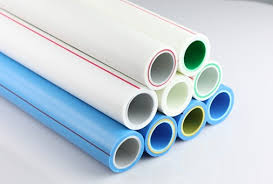Sep . 30, 2024 20:58 Back to list
Different Varieties of PVC Pipes and Their Applications in Modern Construction
Understanding the Types of PVC Pipes A Comprehensive Guide
Polyvinyl chloride (PVC) pipes are a popular choice in various construction and plumbing applications due to their versatility, durability, and cost-effectiveness. As one of the most widely used materials in piping systems, PVC offers numerous advantages over traditional metal or concrete pipes. In this article, we'll explore the different types of PVC pipes, their applications, and benefits.
What is PVC?
PVC is a synthetic plastic polymer that is formed through the polymerization of vinyl chloride. This material is known for its strong properties, making it suitable for a wide range of applications. Its resistance to corrosion, chemical exposure, and electrical conductivity makes PVC an ideal choice for different piping systems.
Types of PVC Pipes
1. PVC-U Pipes (Unplasticized PVC) PVC-U pipes are the most common type of PVC pipes. They are rigid and do not contain any plasticizers, which makes them very strong. These pipes are primarily used in water supply systems, drainage systems, and irrigation. Their non-corrosive nature guarantees a long lifespan and low maintenance needs, making them an economical choice.
2. PVC-C Pipes (Chlorinated PVC) Chlorinated PVC pipes are modified versions of standard PVC. They can withstand higher temperatures and pressures, making them suitable for hot water applications and industrial processes. PVC-C pipes have excellent chemical resistance, and are often used in chemical plants and as hot water pipes in residential settings.
3. PVC-O Pipes (Oriented PVC) PVC-O pipes are produced through a process that orients the molecular structure of the PVC material, resulting in a stronger and lighter pipe. They have a higher impact resistance and tensile strength compared to traditional PVC pipes. PVC-O is often used in water distribution systems, and offers excellent flow rates, enhancing the efficiency of the plumbing system.
types of pipes pvc product

4. Flexible PVC Pipes Flexible PVC pipes are softer and more pliable than rigid PVC pipes. They are often used in applications that require bending and flexibility, such as pond liners, swimming pool plumbing, and drainage solutions. Flexible PVC pipes are easy to install and can adapt to changes in terrain, making them suitable for various outdoor applications.
5. Schedule 40 and Schedule 80 PVC Pipes These classifications refer to the thickness of the pipe walls. Schedule 40 PVC is standard thickness for most residential plumbing and irrigation applications, while Schedule 80 PVC has thicker walls, making it suitable for industrial applications where higher pressure and durability are required. Both types are available in various diameters and lengths.
6. PVC Drainage Pipes Specifically designed for drainage and sewer applications, PVC drainage pipes come in several sizes and types, including perforated and non-perforated pipes. The perforated version allows water to seep into the surrounding soil, while the non-perforated pipes are used for carrying wastewater away from homes and buildings.
Advantages of PVC Pipes
- Durability PVC pipes are resistant to corrosion, chemicals, and environmental factors, ensuring a long lifespan. - Cost-Effectiveness PVC pipes are generally less expensive than metal pipes, and their low maintenance costs make them a preferred choice for homeowners and builders. - Lightweight PVC pipes are lightweight and easy to handle, which simplifies transportation and installation. - Ease of Installation PVC pipes can be easily cut and fitted with various connection systems, reducing labor time and installation costs. - Environmentally Friendly PVC is recyclable, which contributes to sustainability efforts in construction and plumbing.
Conclusion
PVC pipes have revolutionized the plumbing and construction industries with their versatility and affordability. With various types tailored to meet specific needs, from residential drains to industrial environments, understanding the different types of PVC pipes can help you make informed decisions for your projects. Whether you are a contractor, plumber, or DIY enthusiast, incorporating PVC piping into your plans can lead to practical and efficient solutions.
-
High-Quality PVC Borehole Pipes Durable & Versatile Pipe Solutions
NewsJul.08,2025
-
High-Quality PVC Perforated Pipes for Efficient Drainage Leading Manufacturers & Factories
NewsJul.08,2025
-
High-Quality PVC Borehole Pipes Durable Pipe Solutions by Leading Manufacturer
NewsJul.08,2025
-
High-Quality PVC Borehole Pipes Reliable PVC Pipe Manufacturer Solutions
NewsJul.07,2025
-
High-Quality UPVC Drain Pipes Durable HDPE & Drain Pipe Solutions
NewsJul.07,2025
-
High-Quality Conduit Pipes & HDPE Conduit Fittings Manufacturer Reliable Factory Supply
NewsJul.06,2025

